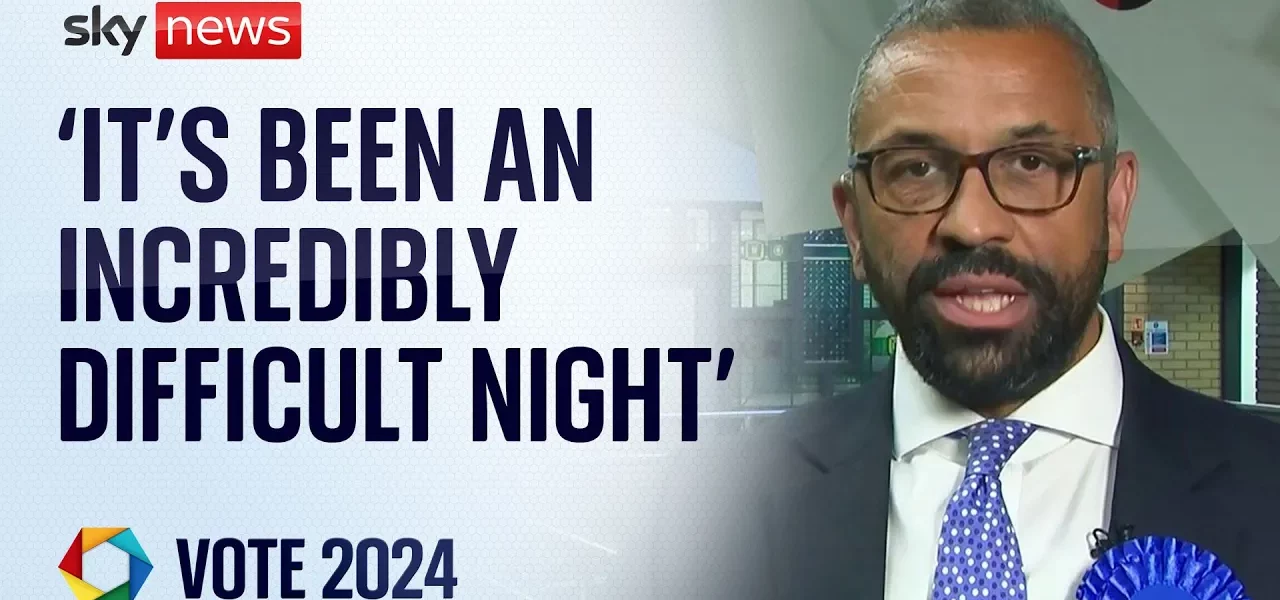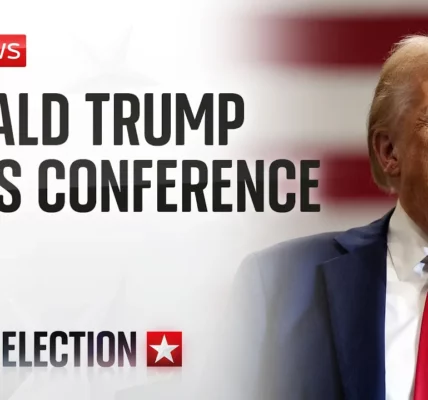James Cleverly’s Acceptance Speech: Implications for the Conservative Party

In this article, we delve into the key points made by Home Secretary James Cleverly during his acceptance speech after the recent UK elections. We explore the significance of his words for the Conservative Party, the challenges they face, and the broader context of British politics.
Introduction
James Cleverly, the Home Secretary, took to the stage to deliver an acceptance speech that was both reflective and revealing. Following a challenging election night for the Conservative Party, Cleverly’s address encapsulated the mix of gratitude for his re-election and the sobering reality of the party’s diminished position in government. His remarks not only highlighted the personal losses felt by his party but also called for a period of introspection and humility as they navigate their future in opposition.
The Context of the Speech
The backdrop of Cleverly’s acceptance speech is critical for understanding its significance. The Conservative Party faced historic losses during the election, leading to a substantial reduction in their parliamentary representation. This section outlines the context that shaped Cleverly’s remarks.
Election Results Overview
The recent elections resulted in a considerable victory for the Labour Party, with Labour securing 403 seats compared to the Conservative’s 111. This stark contrast underscores a pivotal moment in British political history.
Emotional Toll on the Party
Cleverly acknowledged the emotional difficulty of witnessing the loss of many cabinet colleagues, emphasizing that these individuals were not just coworkers but friends. This personal aspect adds depth to his speech and highlights the human element within political dynamics.
Key Themes from the Acceptance Speech
Reflection and Humility
A central theme of Cleverly’s speech was the need for reflection and humility within the Conservative Party. He emphasized the importance of understanding the reasons behind their electoral defeat and the need to reassess their offerings to the British public.
Broadening the Party’s Appeal
Cleverly advocated for a more inclusive Conservative Party that embraces a wide range of center-right opinions. He pointed to historical examples, such as Margaret Thatcher’s leadership, to illustrate the benefits of a broad-based party approach.
The Role of Leadership
While Cleverly was cautious about discussing future leadership, he acknowledged the importance of strong leadership in guiding the party through these challenging times. His focus remained on retaining his seat and addressing immediate concerns rather than speculating about future positions.
Implications for British Politics
Labour’s Historical Victory
Cleverly recognized the significance of Labour’s victory but cautioned that it should not be seen as a complete endorsement by the electorate. He noted that a substantial portion of voters chose not to support either of the traditional parties, indicating a potential shift in public sentiment.
Future of the Conservative Party
The path forward for the Conservative Party requires careful consideration of the lessons learned from this election. Cleverly’s call for thoughtful responses rather than knee-jerk reactions is a crucial takeaway for party members.
Engaging with Voter Sentiment
One of the primary takeaways from Cleverly’s speech is the necessity for the Conservative Party to engage with the sentiments of the electorate. Understanding why many voters felt disconnected from both major parties is essential for rebuilding trust and support.
Conclusion
James Cleverly’s acceptance speech serves as a vital reflection of the current state of the Conservative Party and British politics at large. His emphasis on humility, introspection, and the need for a broader party appeal highlights the challenges ahead. As the party moves forward, it is crucial that they heed the lessons from this election and engage thoughtfully with the electorate. The future of the Conservative Party may depend on their ability to adapt and evolve in response to the changing political landscape. For further insights on British politics and the implications of these recent elections, explore our related articles.
“`




